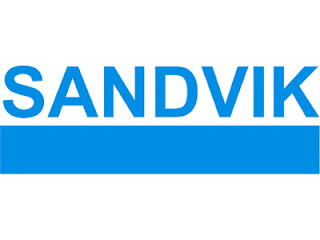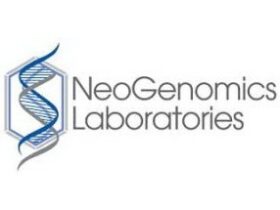DAI is an international development company. For more than 45 years, we have worked on the frontlines of international development, tackling fundamental social and economic development problems caused by inefficient markets, ineffective governance, and instability. Currently, DAI is delivering results that matter in some 80 countries. Our development solutions turn ideas into impact by bringing together fresh combinations of expertise and innovation across multiple disciplines. Our clients include international development agencies, international lending institutions, private corporations and philanthropies, and national governments.
SCOPE OF WORK
Place of Performance:Tanzania
Evaluator:INVEST Afghanistan Strategic Investment Advisor
INTRODUCTION:
Through INVEST, USAID/Tanzania seeks to unlock the potential of private capital (foreign direct investment, diaspora, and local) to drive inclusive growth. Increasingly, private investors and businesses are looking to emerging markets for better returns and new market opportunities. Encouraging investment in high-impact areas requires new forms of collaboration between USAID and the investment community. Specifically, USAID can leverage its resources – grants/seed capital/subsidy funds/etc., technical assistance, guarantees, and convening power – to help raise awareness of investment opportunities, lower transaction costs, and mitigate the risk of investments that generate positive social, economic, and environmental impact.
Through INVEST’s flexible buy-in mechanism, USAID Missions and Operating Units can access an unprecedented network of firms and individuals that have the range of technical expertise needed to identify opportunities and effectively mobilize private capital toward development priorities. Using a lean approach tailored to high potential opportunities, relevant parts of the network will come together to research, develop, and build specific solutions that align private capital with development needs.
BACKGROUND:
Service level agreements (SLAs) between faith-based (FB) hospitals and the Government of Tanzania (GOT) are being terminated. SLAs have provided significant financial resources and critical medical staff for FB hospitals. Forty-four percent (44%) of all operating hospitals in Tanzania are owned and managed by the FB community, while 43% of all operating hospitals are GOT owned and managed.
The Christian Social Services Commission (CSSC) represents the FB hospital network. A March 2020 study conducted at a CSSC hospital, Sengerema Hospital, revealed that more than 60 percent of its operating funds have been through its SLA. More than 80 percent of the staff (214 healthcare workers) were seconded to the hospital and on the government payroll. A new government hospital is being constructed not far from Sengerema and it is anticipated that many of the current staff at Sengerma will be transferred to the new public hospital. Many CSSC hospitals, which have been designated hospitals, will face very similar problems as public hospitals in their vicinity come into operation
The GOT is expanding its network of 37 hospitals to 67 hospitals, some in the vicinity of existing FB hospitals. Because there is a severe shortage of health workers in the current public network with infrastructure that requires enhanced maintenance, it will take some time to raise the level of public healthcare to desired levels. This gives the FB hospital network a window of opportunity to develop a new niche in the national hospital system.
The challenging situation facing the CSSC healthcare network offers USAID an opportunity to participate in a significant transformation of the private health sector in Tanzania. The CCT and TEC religious leadership is now receptive to adopting market-based policies and practices that will increase the network’s self-reliance.
OBJECTIVES :
INVEST is seeking a consultant to complete a rapid assessment validate the interventions identified in the GH/CII exercise and propose solutions for intervention design in support of the USAID/Tanzania Mission in creating a pathway to a self-reliant, market oriented CSSC hospital network. This activities completed under this scope of work will be relayed to the Phase 2 activity, implemented by a procured partner, to design solutions per the validated interventions and findings from the rapid assessment.
ACTIVITIES:
Through a combination of desk-based research and stakeholder interviews, INVEST is seeking a consultant, to conduct an analysis to validate underlying hypothesis and determine requirements for the proposed solutions. The interventions, which are outlined in the problem statement below, were proposed in the 2018 GH/CII deep dive. The assessment should culminate in an analysis and validation of the revolving fund as an appropriate blended finance solution, including requirements for each solution set, and a proposal of solutions to be pursued in phase 2, and/or propose additional or alternative solutions that may be determined as more appropriate after the analysis. The assessment should also culminate with evidence, data, and examples of how CSSC hospitals can improve revenue generation, lower costs, etc.
Problem: CSSC hospitals must improve their long-term financial sustainability and strengthen their business model to improve their market competitiveness.
Result: CSSC hospitals can compete with public and commercial sector hospitals and are financially self-reliant.
Objective 1a : Establish a sustainable bridge financing mechanism that buttresses CSSC hospitals against cash flow problems due to delayed NHIF payments.
Intervention 1a.1.: Create a revolving fund for CSSC hospitals
As shown below, a revolving fund, initially capitalized by a loan from a local bank or other financial institution, will be supplemented by user fees paid by FB hospitals that need access to working capital loans.
Instead of the traditional reliance on collateral, bank loans will be disbursed against NHIF receivables and hospitals will repay the loans, plus interest, after they receive NHIF reimbursement. The activity will first target regions where the religious leadership and hospital administration demonstrate the highest commitment, capacity, and need for support in achieving national and USAID health goals. Over time as the pool of funds increases, more facilities can join and take out and repay loans. Eventually, the initial loan will be repaid to the bank and the revolving fund will become self-sustaining.
Intervention 1a.2: CSSC HQ staff provide technical assistance to member hospitals to reduce errors in completing NHIF claims, which contribute to delayed payment.
Objective 1b : Enhance the market competitiveness of CSSC hospitals
Intervention 1b.1 : A notional network-wide market segmentation strategy is emerging under the leadership of the CSSC office in Dar-es-Salaam. However, more bottom-up evidence is needed. Some hospitals have already implemented innovative market-based solutions, such as Selian Lutheran Hospital in Arusha. CSSC would like to document examples of successful revenue generation, reduction in operating costs, and innovative practices at Selian Lutheran Hospital and 4-5 other progressive hospitals, which will be shared by CSSC throughout the network.
The intervention described above is meant to support a holistic shift within the CSSC network away from dependence on government and donor grant funding and towards a more sustainable business model. There may be opportunities to streamline or combine some of these interventions or modify them depending upon what is ultimately needed to help support the CSSC hospitals.
ILLUSTRATIVE DELIVERABLES
The activities under this scope of work will take place over a 6 to 8 week period beginning July/August 2020.
Deliverables may include:
Phase 1: Assessment report to validate or restate hypothesis, identify potential solutions and draft requirements for the proposed solutions.
DURATION AND PLACE OF PERFORMANCE
On/about July 15, 2020 – on/about August 30, 2020. Place of Performance will be Tanzania.
REPORTING
The consultant will report to the INVEST Activity Manager who will be responsible for technical supervision and acceptance of all deliverables.











